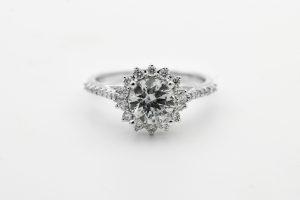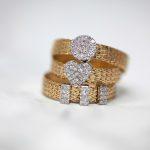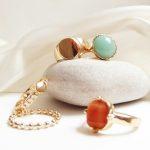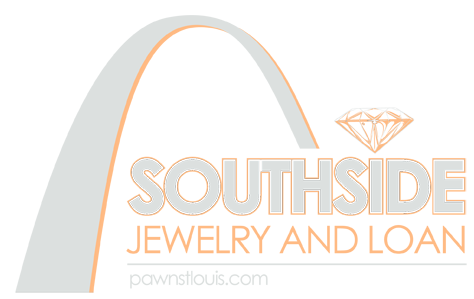-
How Do Pawnshops Appraise Jewelry: 10 Insider Tips
Ever wondered how pawnshops determine the value of your precious jewelry? Get ready to dive into the world of jewelry appraisal as we uncover the mystery behind pawnshop evaluations. From gemstone clarity to metal purity, every detail plays a crucial role in assessing your bling’s worth.

In this listicle, we’ll walk you through the key factors that pawnshops consider when appraising jewelry. Discover insider tips on what makes your baubles sparkle in the eyes of pawnbrokers and learn how you can maximize their value. Stay tuned as we spill the beans on how these hidden gems are valued and priced behind those glass counters.
Understanding the 4 Cs: Carat, Cut, Clarity, and Color
Carat is a crucial factor in determining the value and price of a gemstone or diamond. The weight directly impacts its price and rarity.
Cut plays an essential role in how brilliantly a diamond sparkles. A well-cut diamond maximizes light reflection for that coveted sparkle.
Clarity refers to the presence of imperfections within the stone. Fewer flaws mean higher clarity grades and increased value.
Color grading assesses how colorless a diamond is. The less color present, the higher its grade on the color scale.
When appraising jewelry at pawnshops, understanding these four aspects can help you gauge the price and worth of your items accurately based on industry standards and market demand.
The Importance of Hallmarks and Maker’s Marks
Hallmarks play a crucial role in determining the metal purity and authenticity of jewelry. This is vital as it assures buyers of the quality they are investing in.
Maker’s marks provide insight into the jeweler or manufacturer behind a piece, offering a glimpse into its history and craftsmanship. Knowing the creator can add sentimental value to jewelry.
The presence of hallmarks, maker’s marks, shop, and pawn can significantly impact the worth and desirability of jewelry items. Pieces with clear markings from renowned brands or skilled artisans often command higher prices due to their provenance.
Understanding these marks not only adds interest to your collection but also serves as a great way to authenticate certain types of jewelry. It gives you an account of where your piece comes from, adding depth to its story.
Pawning vs. Selling
Financial Benefits
When it comes to jewelry, there are financial benefits to both selling and pawning. Selling your jewelry outright or pawning it can provide you with quick cash when you need it most. Pawnshops are always on the lookout for valuable pieces, and they are willing to pay a fair price for them. By pawning your jewelry, you can receive an immediate payment that can be used for any purpose, whether it’s paying bills or funding a new purchase.
On the other hand, pawning your jewelry allows you to use it as collateral for a loan. This means that you can pawn your precious items to get the money you need while still keeping ownership of them. Pawnshops will appraise your jewelry and offer you a loan amount based on its value. You pawn your jewelry for a set period of time to repay the loan plus interest, and once you do, you get your jewelry back.
Process Differences
The processes of selling and pawning jewelry differ in several ways. When selling jewelry, the process is relatively straightforward. You bring your items to the pawnshop, they appraise them, and then make an offer based on their assessment of the value. If you accept the offer, you receive immediate payment.
Pawning jewelry involves a slightly different process. First, you pawn your items for appraisal just like when selling. However, instead of receiving immediate payment, you receive a pawn loan offer based on the appraised value of your jewelry. If you choose to accept the pawn loan offer, you’ll sign a contract outlining the terms of repayment including interest rates and due dates.
Outcome Expectations
It’s important for pawners to have realistic expectations about appraisal outcomes when dealing with pawnshops. While pawnshops strive to provide fair offers based on market value and condition of the item, it’s essential to understand that they also need to make a profit.
When pawning or selling jewelry at a pawnshop, it’s crucial to remember that you may not receive the full retail value of your items. This is because pawnshops need to consider factors such as overhead costs and potential resale value. It’s important to be prepared for negotiation scenarios where you can discuss the price, potentially reach a mutually beneficial agreement, and not get pawned.
Maximizing Appraisal Value
Clean Jewelry
To maximize the appraisal value of your jewelry when pawning, it is crucial to present it in its best possible condition. Cleanliness, including whether jewelry is pawned or not, plays a significant role in how it is perceived and valued. Before taking your jewelry to a pawnshop for appraisal, make sure to clean it thoroughly. This includes removing any dirt, grime, or residue that may have accumulated over time.
By cleaning your jewelry before the appraisal, you are giving it the best chance to shine, showcase its true beauty, and pawn. A clean piece of jewelry not only looks more appealing but also gives the impression that it has been well-maintained and cared for. This can positively impact the perceived value of your jewelry during the appraisal process.
Bring Provenance

When seeking an accurate appraisal for your jewelry, it is highly recommended to provide any provenance or history associated with the piece. Provenance refers to the documented record of ownership and origin of an item, such as who previously owned it, where it was purchased, or any notable events or stories connected to it.
Including provenance can significantly enhance the value and authenticity of your jewelry. It provides valuable information about the piece’s background, rarity, and uniqueness. Pawnshops often consider provenance when appraising jewelry because it adds an extra layer of credibility and interest to the item.
f you have any documentation or knowledge about the history of your jewelry, be sure to bring it along for the appraisal. Sharing this information with the appraiser can help them better understand and evaluate your piece accurately.
Timing Matters
Timing can play a crucial role in maximizing the value of your jewelry during an appraisal. Market conditions and trends can greatly influence appraisal values, so being aware of these factors can help you make informed decisions about when to sell or pawn your jewelry for optimal returns.
For example, certain types of jewelry may be more in demand during specific seasons or events. Understanding these trends can help you time your appraisal strategically to take advantage of higher market demand and potentially secure a better appraisal value.
Keeping an eye on the overall economic climate can also be beneficial. If the economy is experiencing a downturn, people may be more inclined to sell their jewelry, leading to a saturated market and potentially lower appraisal values. On the other hand, during times of economic growth and stability, there may be increased demand for luxury items like jewelry, resulting in higher appraisal values.
Negotiation Strategies
Initial Offers
When it comes to appraising jewelry at pawnshops, the first step is receiving initial offers. This is the point where customers get their first glimpse into the value of their precious pieces. It’s important to note that initial offers may not always meet your expectations, but they serve as a starting point for negotiations.
Pawnshops calculate initial offers based on several factors. These include the quality and condition of the jewelry, current market trends, and the demand for certain types of pieces. The appraiser will carefully examine your jewelry, assessing its authenticity, craftsmanship, and any unique features that contribute to its value.
As a customer, it’s crucial to be prepared for the possibility of lower initial offers than anticipated. Remember that pawnshops are businesses aiming to make a profit when reselling items. However, don’t be discouraged by these estimates. Instead, use them as a basis for negotiation to maximize the final appraisal value.
Counteroffers
Negotiating with pawnshops involves skillfully navigating counteroffers. When faced with a counteroffer, it’s essential to approach it strategically. Making counteroffers allows you to assert your desired value for your jewelry and potentially increase the appraisal offer.
To effectively handle counteroffers during negotiations, consider researching similar pieces of jewelry online or consulting with experts in the field. This information can provide you with an understanding of the fair market value for your item and help you make informed counteroffers.
Remember that negotiations are a give-and-take process. If you receive a counteroffer that falls below your expectations but is within a reasonable range, consider making a compromise. By finding common ground between your desired value and the pawnshop’s offer, you increase the chances of reaching an agreement beneficial to both parties.
On the other hand, if you receive a counteroffer far below what you believe your jewelry is worth or if you have received higher offers from other pawnshops, it may be wise to reject the counteroffer and explore other options. Don’t be afraid to walk away if you feel that the appraisal value does not align with your expectations.
Final Agreement
Reaching a final agreement on jewelry appraisal is the ultimate goal of negotiations. This is the stage where both you and the pawnshop settle on a mutually acceptable value for your jewelry. It’s crucial to carefully review the terms and conditions of the final offer before finalizing the deal.
Ensure that you have a clear understanding of any additional fees or charges associated with the appraisal process. Discuss any potential deductions or requirements that may affect the final value. By clarifying these details, you can avoid any surprises down the line.
Before signing any agreements, take your time to evaluate whether the final offer aligns with your expectations and needs. If you’re satisfied with the appraisal value and confident in your decision, proceed with finalizing the deal.
Understanding Market Value

Price Research
Before getting your jewelry appraised at a pawnshop, it is important to conduct thorough price research. This will help you have a better understanding of the market value of your jewelry and ensure that you receive a fair appraisal. One tip is to compare prices from different sources such as online marketplaces, jewelry stores, and auction houses. By doing so, you can get an idea of the range of prices for similar pieces. Keep in mind that factors such as the quality of materials, craftsmanship, brand reputation, and current demand trends can all affect the value of your jewelry.
Demand Trends
Being aware of current demand trends in the jewelry market can greatly impact the appraisal value of your jewelry. Certain styles or designs may be more popular and in higher demand than others, which can drive up their value. For example, vintage or antique pieces may be highly sought after by collectors and enthusiasts, leading to higher appraisals. On the other hand, trends can also change over time, so it’s important to stay updated on what is currently in demand. By understanding these trends, you can have a better idea of how much your jewelry might be worth.
Appraiser Expertise
When it comes to appraising jewelry, working with experienced appraisers is crucial. These professionals have the qualifications and expertise required to accurately determine the worth of your jewelry. They are knowledgeable about different types of gemstones and metals, as well as various jewelry-making techniques. Their expertise allows them to assess factors such as clarity, color, cut, carat weight, and overall condition when appraising your jewelry. By relying on their expertise, you can trust that you are receiving an accurate appraisal based on industry standards.
Evaluating Pawnshops
When it comes to evaluating pawnshops, there are several factors that customers should consider in order to make informed decisions and ensure a positive experience. This section will discuss three important aspects to keep in mind when dealing with pawnshops: reputation check, offer comparisons, and negotiation policies.
Reputation Check
Before engaging with any pawnshop, it is crucial for customers to research and verify the reputation of the establishment. Reputation is key when choosing a pawnshop because it reflects the trustworthiness and reliability of the buyer. By checking reviews and testimonials from previous customers, potential sellers can gain valuable insights into the experiences others have had with a particular pawnshop.
By researching online or asking for recommendations from friends and family, customers can gather information about different pawn shops in their local area. Positive reviews and satisfied customer testimonials indicate that the pawnshop has a good track record of fair dealings and reliable appraisals. Conversely, negative reviews or complaints may serve as warning signs to steer clear of certain establishments.
Offer Comparisons
One of the advantages of dealing with multiple pawn shops is the ability to compare offers. Customers are encouraged to explore different selling options by obtaining appraisals from various pawnshops. By doing so, they can determine which establishment offers the best price for their jewelry.
Comparing offers allows customers to make an informed decision based on their evaluations. It is important to note that not all pawnshops will provide the same appraisal value due to variations in expertise and market demand. Therefore, by seeking multiple offers, customers can gain a better understanding of the range of prices they can expect for their jewelry.
Negotiation Policies
Understanding the negotiation policies and practices of pawn shops can be beneficial for customers during the appraisal process. While some establishments have strict policies regarding negotiations, others may be more flexible. It is essential for customers to be aware of these policies before entering into any negotiations.
Customers should be prepared to negotiate during the appraisal process. By doing their research and understanding the market value of their jewelry, customers can confidently engage in negotiations with pawnshop representatives. Effective negotiation strategies include presenting evidence of the jewelry’s worth, highlighting any unique features or historical significance, and being open to compromise.
Selling to Professionals
Direct Sale Benefits
Selling your jewelry directly to professionals can offer several advantages. Firstly, it streamlines the appraisal process. When you sell directly, you eliminate the need for intermediaries, such as pawnshops or consignment stores. This means that you can receive a quicker and more accurate appraisal of your jewelry’s value. By bypassing these middlemen, you save time and effort in getting your jewelry appraised.
Another benefit of direct sales is the opportunity to negotiate the price directly with the buyer. Unlike pawnshops, which may have fixed pricing structures or strict policies, selling to professionals allows for more flexibility in determining the value of your jewelry. This gives you a better chance of receiving a fair price for your items.
Selling directly to jewelry buyers can provide you with a higher resale value. Professionals who specialize in buying jewelry are often well-versed in market trends and current demand. They have a deep understanding of the true worth of different types of jewelry and can offer competitive prices based on their expertise. By selling directly to these professionals, you increase the likelihood of receiving a higher payout for your valuable pieces.
Trusted Buyer Features
When choosing a buyer for your jewelry, it is crucial to consider certain features that indicate trustworthiness and professionalism. Reliability is one such feature to look for. A trusted buyer will have a proven track record of conducting fair transactions and providing accurate appraisals. Researching customer reviews and testimonials can help you gauge their reliability.
Transparency is another important quality in a trusted buyer. They should be open about their appraisal methods and pricing criteria, ensuring that you understand how they determine the value of your jewelry. This transparency builds trust between both parties and ensures a smoother transaction process.
Professionalism is also key when selecting a buyer for your jewelry. A professional buyer will treat you with respect throughout the appraisal and sale process. They will answer any questions you have and provide clear explanations of their appraisal findings. Look for buyers who are knowledgeable about different types of jewelry and can offer insights into the market value of your items.
Location Matters

When it comes to appraising jewelry, the location of the buyer can make a significant difference. There are both local and national buyers in the market, each with their own set of advantages and disadvantages.
Local vs. National
Local Buyers: Selling jewelry to local buyers offers several benefits. One of the main advantages is convenience. Local buyers are easily accessible, and you can visit their physical stores to get your jewelry appraised on the spot. This eliminates the need for shipping or waiting for an online appraisal.
Another advantage is the opportunity for face-to-face interaction. When dealing with local buyers, you have the chance to build a personal relationship and discuss your jewelry directly with them. This can lead to better communication and understanding during the appraisal process.
Pricing is another factor to consider when choosing between local and national buyers. Local buyers may offer more competitive prices because they have a better understanding of the local market and its demands. They are also more likely to be familiar with the value of certain jewelry pieces within their specific region.
However, there are some downsides to selling jewelry locally as well. The pool of potential buyers may be limited compared to national buyers, which could affect your chances of finding the best price for your jewelry. Not all local buyers may specialize in appraising certain types or parts of jewelry, so you might need to do some research before deciding on a local buyer.
National Buyers: On the other hand, selling jewelry to national buyers has its own advantages. One major benefit is the broader market reach that national buyers offer. They often have a larger customer base and more resources available to them, increasing your chances of finding a buyer willing to pay top dollar for your jewelry.
Trust is another important factor when dealing with national buyers. Established national companies often have built-in trust due to their reputation and longevity in the field. This can provide peace of mind knowing that you are dealing with a reputable and trustworthy buyer.
However, there are some potential drawbacks to consider. Selling jewelry to national buyers may involve shipping your precious items, which comes with its own set of risks. It’s crucial to ensure proper packaging and insurance to protect your jewelry during transit.
Closing Thoughts
In conclusion, understanding how pawnshops appraise jewelry can greatly benefit you when it comes to getting the best value for your items. By following the insider appraisal tips we provided, you can maximize the appraisal value and increase your chances of negotiating a better deal. Remember to evaluate pawnshops carefully and consider selling to professionals who specialize in jewelry, as they may offer higher prices. Keep in mind that location matters, as different areas may have varying market values for jewelry.
Now that you have these ten insider tips under your belt, it’s time to put them into action. Take the knowledge you’ve gained and confidently approach pawnshops with your jewelry. With this newfound understanding, you’ll be able to navigate the appraisal process more effectively and secure a fair price for your items. So go ahead, make the most out of your jewelry appraisal journey and get the best value possible.
Frequently Asked Questions
How do pawnshops appraise jewelry?
Pawnshops appraise jewelry by evaluating its quality, condition, and market demand. They consider factors such as the metal type, gemstone quality, craftsmanship, and brand reputation. The overall appraisal value is determined based on these factors and current market trends.
What are some insider tips for jewelry appraisal?
Insider tips for jewelry appraisal include cleaning and polishing the jewelry before bringing it to the pawnshop, providing any relevant documentation or certificates of authenticity, knowing the market value of your jewelry beforehand, and being prepared to negotiate with the pawnshop.
Should I pawn or sell my jewelry?
Whether you should pawn or sell your jewelry depends on your financial situation and personal preferences. Pawning allows you to get a loan using your jewelry as collateral, while selling means you receive immediate cash. Consider factors like sentimental value and urgency in making this decision.
How can I maximize the appraisal value of my jewelry at local pawn shops, different pawn shops, and gold buyers, especially for karat gold?
To maximize the appraisal value of your jewelry, ensure it is in good condition by cleaning and repairing any damage. Providing any supporting documentation or certificates can also increase its value. Researching current market prices and choosing a reputable pawnshop can help you get a fair appraisal.
What negotiation strategies can I use when dealing with pawnshops?
When negotiating with a pawnshop, it’s important to be polite and respectful. Do your research beforehand to know the true value of your jewelry. Be willing to negotiate on the price but also consider other options like extending the loan period if pawning. Remember that building a good rapport with the pawnbroker can lead to better outcomes.

